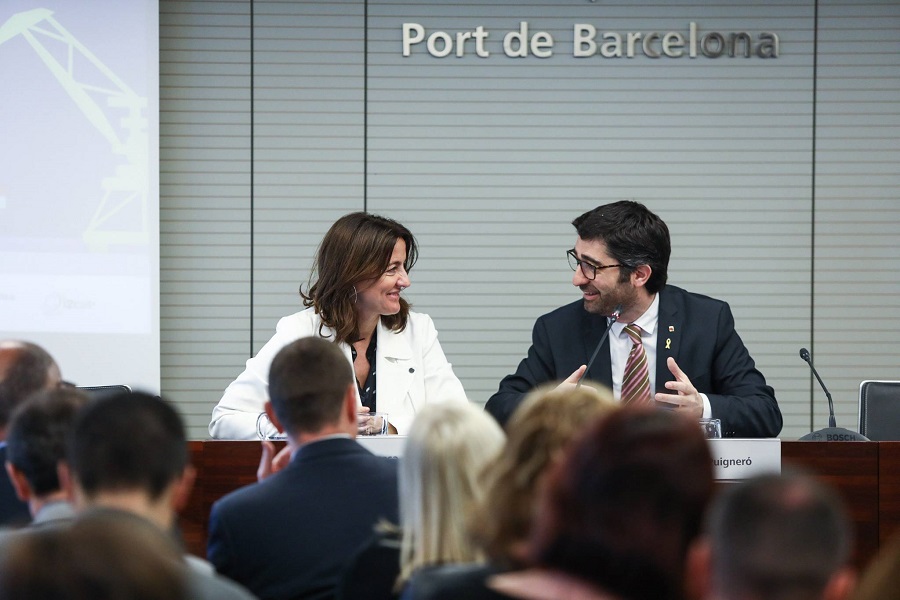
Keep up to date with our innovative initiatives.
Sign up here
For the first time, the open innovation competition SmartCatalonia Challenge, promoted by the Government of Catalonia, will shift its focus from cities to one of the main infrastructures in Catalonia, the Port of Barcelona. This change seeks to contribute to the digital transformation of the Port and improve its management and operations through advanced digital technologies.
The Port of Barcelona achieved a record level of activity in 2018. It is the fastest-growing port in western Europe and the main logistics hub in the Mediterranean.
On this matter, Jordi Puigneró, Minister for Digital Policy and Public Administration, has claimed that “we take a step forward: up to now, we have helped local governments to create smart strategies in order to solve their challenges, and now we help in the smart strategy of a paramount infrastructure. In the digital revolution that Catalonia wants to lead, the cities are capitals, and the Port de Barcelona is capital to the strategic and economic development of this country.”

Mercè Conesa, President of Port de Barcelona, and Jordi Puigneró, Minister for Digital Policy and Public Administration
The president of the Port, Mercè Conesa, has stated that “for us at Port of Barcelona, innovation and digital transformation are the tools to advance in sustainability and to increase the economic, social and environmental value that we bring to the economy and our society. For innovation to be truly effective, it has to be open, collaborative, boosted by demand and with a strong technological base.”
In this edition, SmartCatalonia Challenge expects to promote the creation of innovative technological solutions to solve challenges in different areas of port activity. Technologies like Big Data, automatization, IoT, drones or AI can bring a profound improvement that will be essential to automate processes, connect different actors in the logistics chain and accelerate transactions and procedures to make them more reliable and traceable.
The Port of Barcelona is currently under a digital transformation process that will increase efficiency and promote its sustainable growth. Aiming at fostering digitalization, both in port areas and the whole logistics chain, the Catalan institution has created Digital Port, an area that has already defined a total of 54 priority actions which are currently under execution. In the next 4 years, the Port will invest 10 million € in the deployment of a new telecommunications network to take advantage of the potential of 5G and the Internet of Things.
SmartCatalonia Challenge 2019

Yesterday’s presentation is the starting point for the competitive phase of SmartCatalonia Challenge’s 4th edition. During this phase, technological SMEs and startups will have to design and propose mobile apps and solutions based on digital advanced technologies, like Big Data or IoT, to optimize the management of different operations that take place at the harbor.
Participants can sign up at the competition’s official website until June 7th. From that moment, a jury will pre-select the 10 best proposals, which will compete at the end of June for prizes of up to 10.000€ and the opportunity to test their solutions at the Port of Barcelona.